There are some stories which teach us, some stories that make us dream, and some stories that are so real that we cannot help but almost compare them to fiction. We came across one such fantastic story about bravery, realisation, and coming back to life.
When in her early twenties, Mumbai-based Paavni Varma was diagnosed with Ovarian Torsion – a condition in which the ovaries twist around the ligaments that hold it in its place. We listened to her with wonder as she took us through the journey that is rarely heard of but must be spoken about.
We bring to you Paavni’s story about what it takes to battle the unknown and how love between families and friends can get us through anything.
1. Could you tell us a little about yourself? What do you do and where are you from?
A happy-go-lucky, hyper person who believes in positivity, and tight hugs. That’s me! I am currently a Brand Manager at a digital fashion marketplace in Mumbai. I have moved across multiple places, within India and internationally. I’ve lived a part of my life in Uganda, New Zealand and India (Kolkata, Bangalore, Pune, Mumbai). I live with my mum, dad, a younger sister and Whisky (my doggo). I enjoy having great conversations over a cup of chai.

2. How did you discover that you have Ovarian Torsion? How old were you and what was your reaction?
I was completing my last week of MBA in Pune, when I woke up with a severe ache on the left side of my abdomen, something like a combination of a period cramp and acidity which eventually started spreading around the abdomen and taking over my thinking ability, or ability to do anything else.
I had severe hot flushes, felt like stripping my clothes off and needed to be attended to immediately. I felt like I needed to use the loo and throw up, at the same time. It felt like my abdomen was being squeezed. It was a nightmare!
Soon after, I was rushed to the hospital and given a general painkiller. However, with the pain not going away, the doctors advised a sonography which led them to realize I have an Ovarian Torsion. Before they diagnosed it, they assumed it was a kidney stone as the way I was describing the ache was very similar to that of kidney stones. Right after the sonography, they realized it was an emergency and I had to be attended to immediately. The scariest part was between the time that the sonography result was out and my doctor seeing me because all I remember was, them frantically calling the doctor on his day off saying that it’s an emergency and he had to come immediately. As a person with basic understanding of biology, I did not know what a torsion was and my only concern was – “Am I going to live or not”? Those 30-45 mins till the doctor came and spoke to us, were the toughest. Luckily, my aunt, being a doctor, gave the family some peace. However, since there was not much clarity yet, we couldn’t do much.
3. How did your doctor talk to you about it? How did your family react?
Soon after the doctor came in, he attended to my family and me. He gave me a painkiller to control the pain and to monitor if it comes back within 45 mins. He also suggested that I schedule my surgery in Mumbai and as my family already wanted that, we were ready. They understood that the only way out was surgery, as the blood supply to my ovary had stopped completely. So it was now only a matter whether the surgery could be postponed or not. Unfortunately, within 30 minutes, the pain started making its way back and we knew there was no question for the delay.
While the team prepared for the same, I was mentally preparing myself to know that this was only for the best. I only had one question in my head – “Will I be able to have kids”? because I love kids and someday I definitely want my own.
I was heartbroken to know that this was only going to make my chances harder. But, at least it was not a complete NO and I guess that’s what kept me going. This was harder for my parents than for me, as I was the one going through the pain, etc. but I knew I would be fine. They, on the other hand, were making decisions for me and my life and they didn’t really have much of a choice. However if anything went the wrong way, they would probably hold themselves responsible for it.
We did speak to our doctor back home and the family doctor, however given the case, they all advised us to go through with it, because if not, I could lose my life. So there really was not much of a choice.
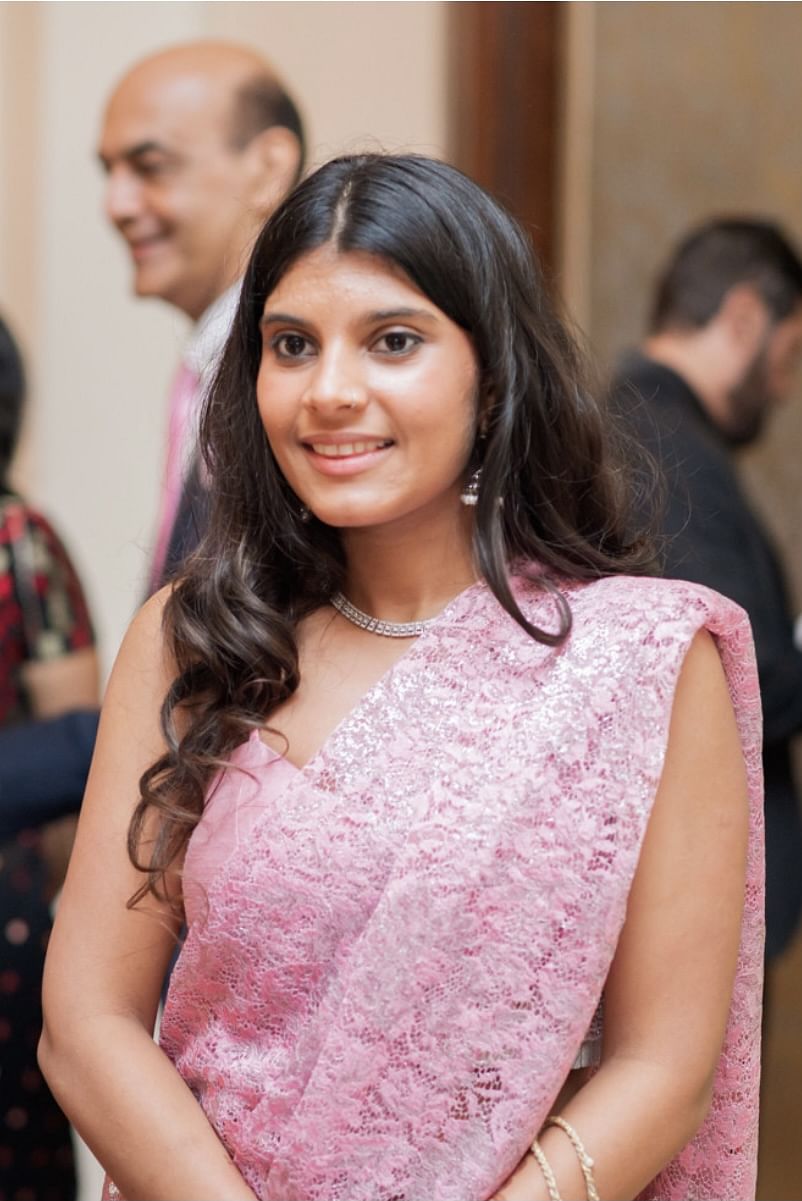
4. What were the options presented to you? Was it always and only a procedure? If there were other options, why did you choose the procedure?
I was not offered any options, I had no choice due to the severity of the case as the blood supply to my ovary had completely stopped. Surgery was my only way out, however, in a case where the torsion is not as intense, there are medical ways to try and do this without a surgery, however, I do not know much about that. Within surgery, the preference was for them to go into me and detangle the knot. However, they did inform me that if they felt like the ovary was badly affected, they may not be able to save it. I do feel sorry for having them remove my ovary. But if that is what gave me comfort and peace, it’s fine as long as the other one is still intact and fully functioning.
5. How did you cope with the process, both mentally and physically? Could you tell us about the post op recovery time?
It was a long, and stressful process. Not just for me, but for everybody around me. The major reason I coped, and even came back to living life normally was because of my supportive and understanding family and friends. My younger sister was my pillar of strength. Post the surgery, I was not allowed to work out, bend, twist, run, do anything that gave a jerk, not allowed to carry anything, not even 500 gms. I was really just meant to eat, sleep, repeat. I was not allowed to even travel as the air pressure in the flight was not good for me. Small things like these started irritating me, however, my friends and family ensured they kept me busy.
The hardest part was that 2 months after the process, I stopped wanting to eat, meet people, do anything at all. I wanted to be alone but was also scared of being alone. It was confusing. Soon my mother realized this was alarming and we saw a doctor who suggested I was undergoing a basic level of depression. I was not sure what was happening, it started getting worse.
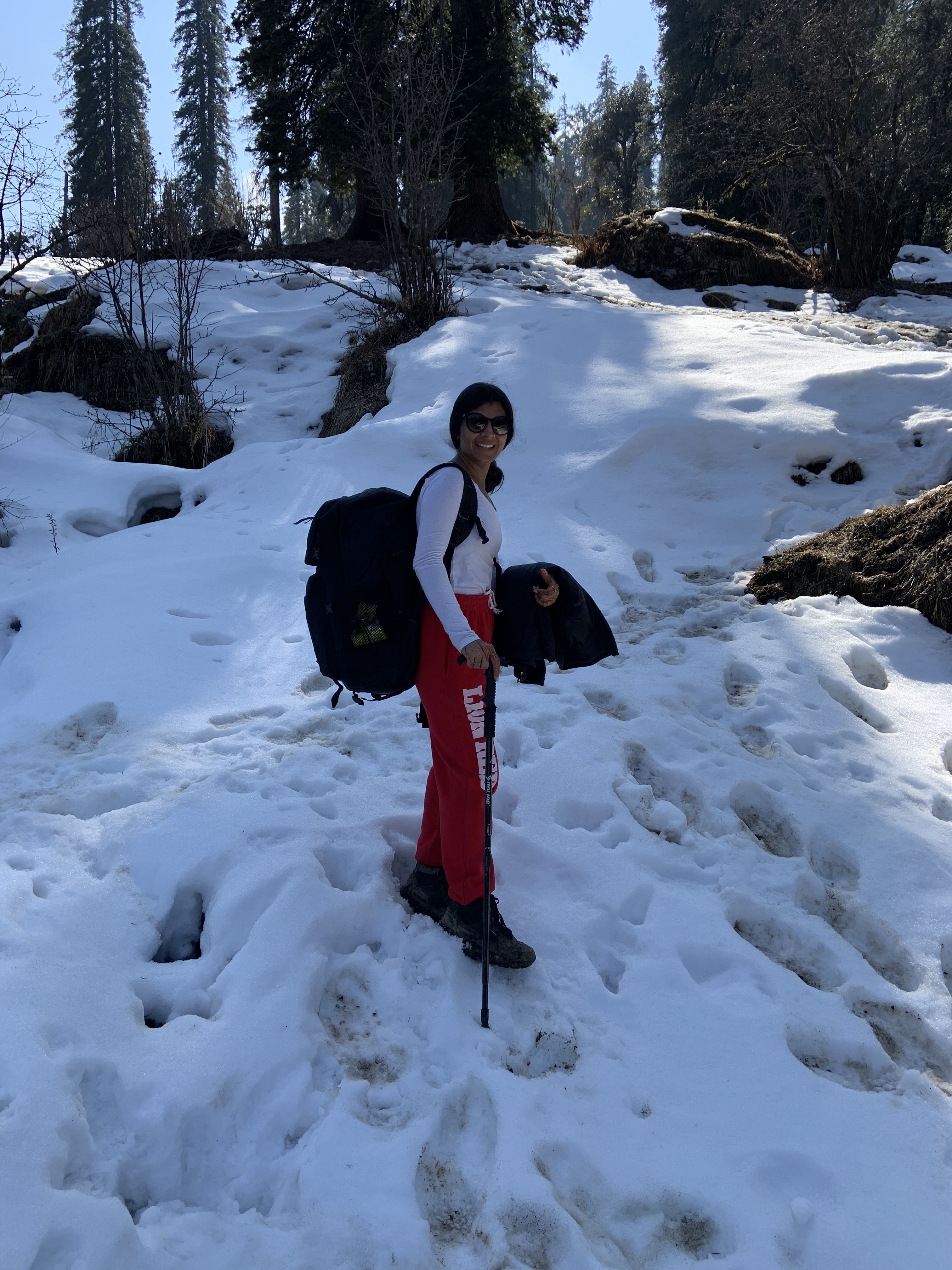
My sister has studied biology in depth (while she was preparing for medicine) and seemed to know how to make me feel okay. She would make a list of small tasks every morning and ask me to complete it. I felt like a 2 year old who could not even go to the loo on my own, let alone live life. These tasks included – drink a glass of milk, paint the wall – she made a sketch of a lion on the wall and asked me to paint different parts every day. This, along with regular working out – pilates and swimming, helped me get out of this. It was the darkest time of my life, but I feel like if it had to happen, I am glad it happened to me as I had the support system to pull me out of it.
Another very serious follow up process was – freezing my eggs! With regular syringes and check ups, the doctors noticed my AMH (anti-mullerian hormone) level kept reducing. This is the hormone responsible for making eggs. This reduction meant that I would eventually not be able to have kids if it kept going down. That was a reason of concern for me as I was just 23 and did not know my future plan. But knowing that it may never be an option was scary and not very pleasing. It is not a hard process on paper, however it takes a mental toll on you. It involves injecting yourself for 15 days . In addition, I was to go for a vaginal sonography every morning to monitor the growth of the eggs. The injections were nothing but more hormones in order to abnormally induce the growth of more eggs than one, in the menstrual cycle. Once the eggs seem ready to be retrieved, the doctors follow a small surgical procedure where they retrieve the eggs from the ovary and store them. Needless to say, it is time consuming, but also an expensive procedure. I underwent this process 4-5 times and got a total of 17 eggs, which is lower than or just average. That was scary and mentally very draining, especially at 23.
6. What kind of lifestyle changes did you have to make after the procedure? Do you still maintain them?
Since my surgery did not affect or involve my digestive system, I luckily didn’t have to make too many food changes. However, I just had to eat regularly and light meals. Needed a lot of protein and energy at all times. The long post op effect was on my skin, which is a process I am working on, to date. Changes in terms of prioritizing my health and my me time, for mental and physical stability were the kind of changes I made.
7. What is that one thing that you would like to tell everyone about Ovarian Torsion?
I didn’t know what it was, I didn’t know it even existed. All I want to say is, this was not easy, but something I overcame and it has changed me as a person. I want to really emphasize on the importance of your health, don’t ever ignore anything the body tries to tell us – even a small ache or a pain should never be ignored because nobody knows what that could become.
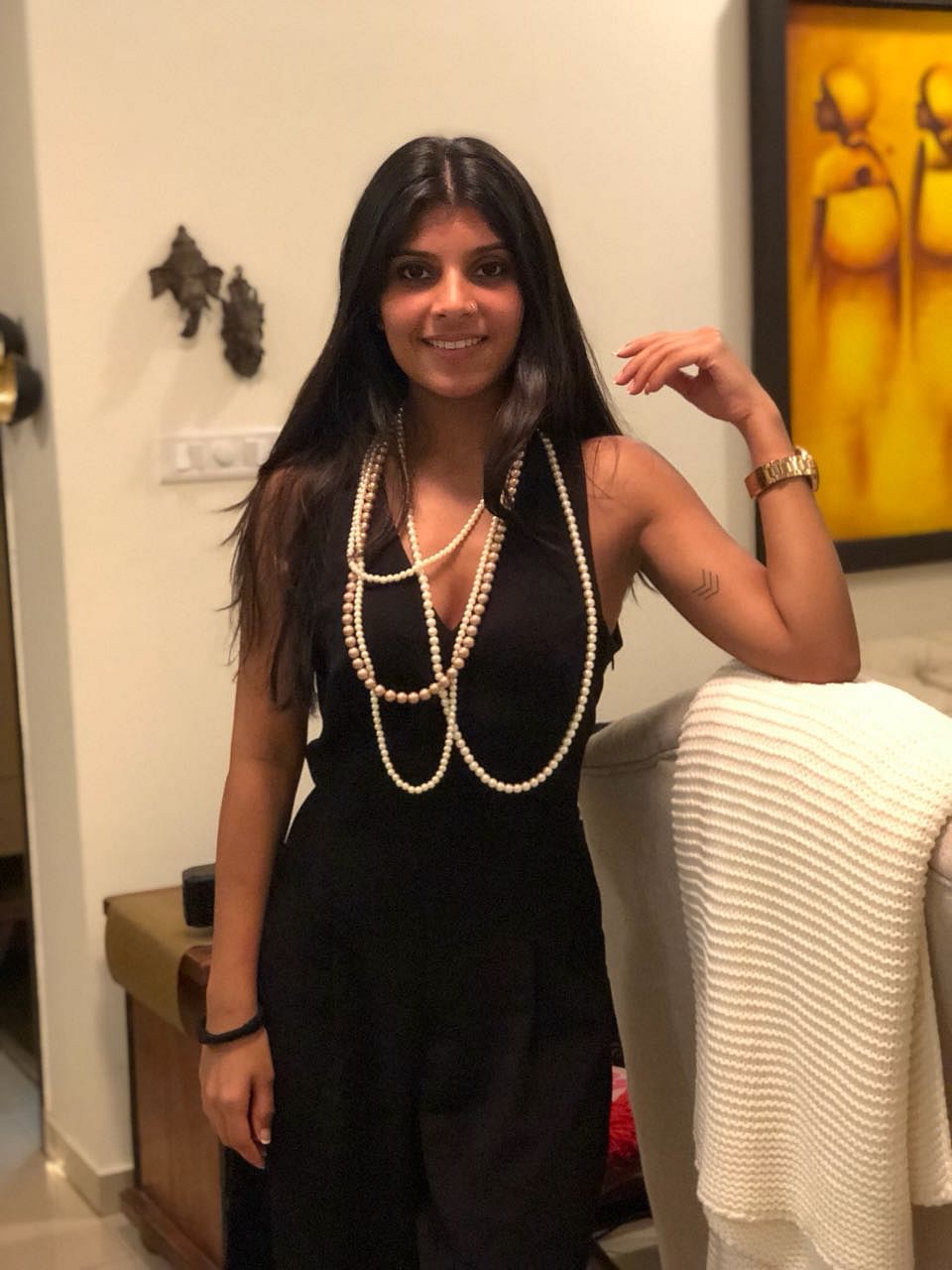
Keep reading about the possibilities as it is always good to know what’s out there. Read about your body and go for regular check ups. Check on others, support them and spread the word!
While our expert contents give us the information we need, the personal stories give us something to relate to. Read more such stories right here.
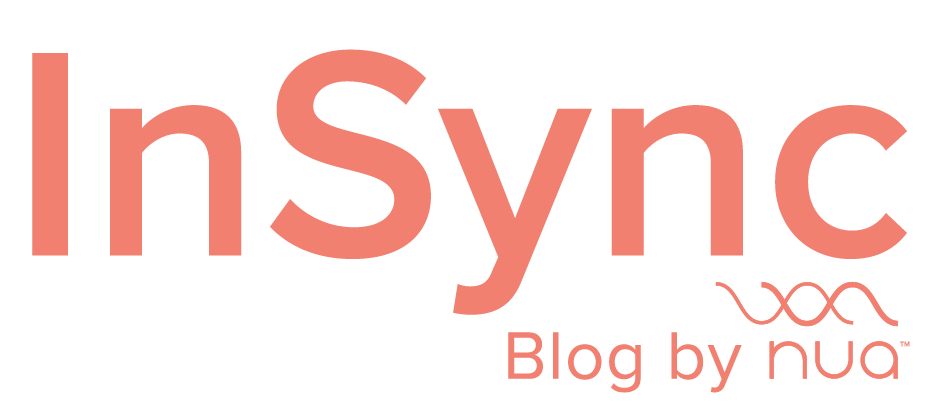

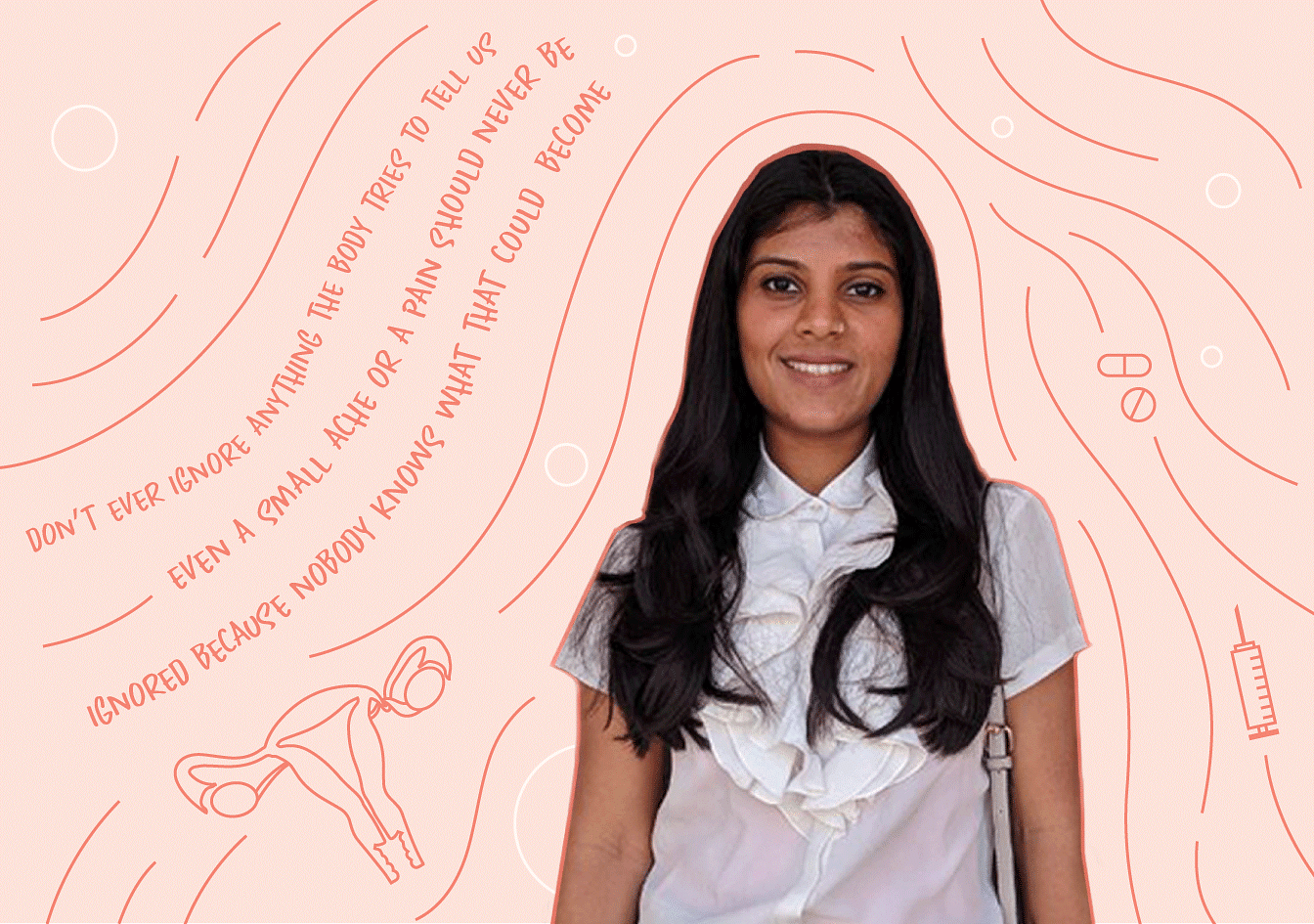




Thank you Paavni for sharing your story.
I went through the same thing and I was only thirteen when it happened. Like completely changes after it. And it’s something so rare, and to go through it at such a young age was a very difficult thing to do. I’m so glad Nua is helping women speak about their journey and inspire other to stay strong.